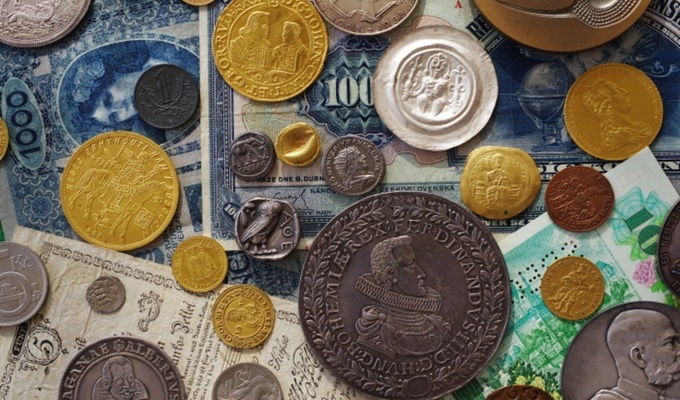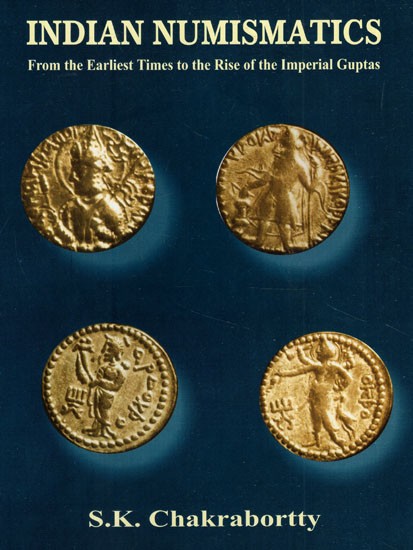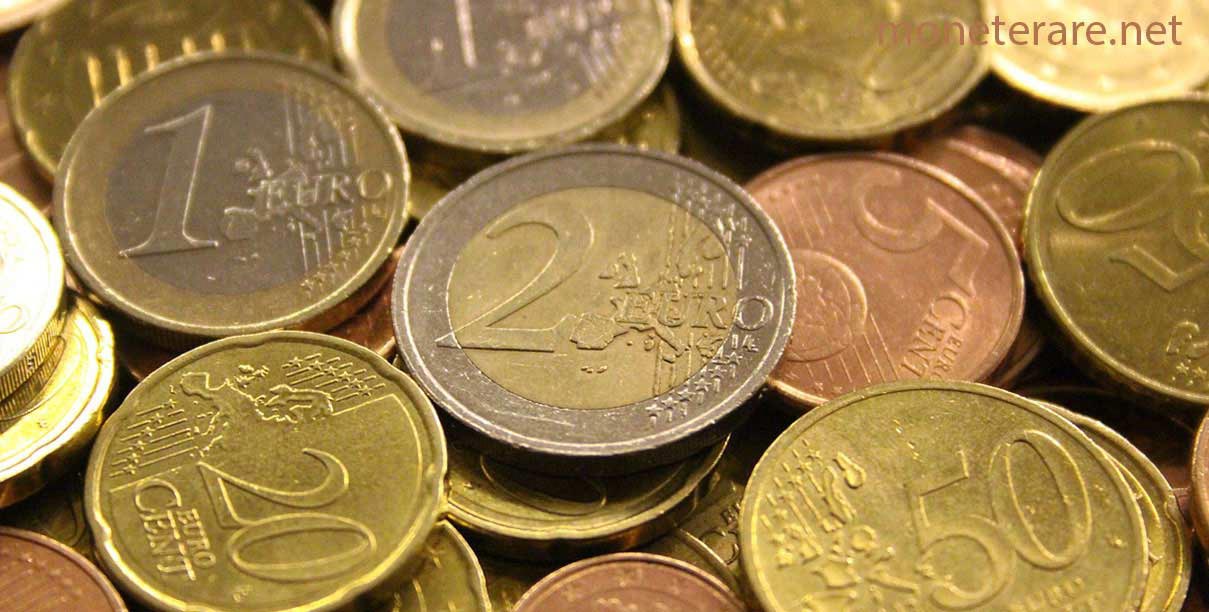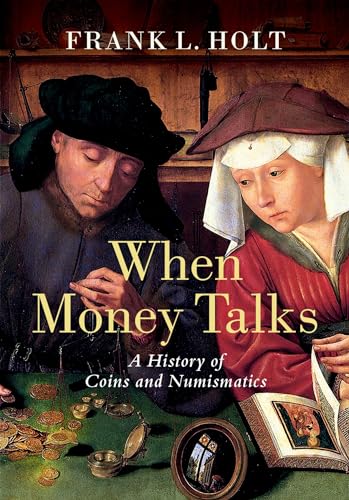Free News For Deciding On Coin Minting And Banknote Catalog
Wiki Article
How Can I Find Out More About Numismatics With Respect To Global And Regional Associations Using Databases?
Here's a structured approach to conducting research in this area: Database Selection: Choose databases that are specialized in numismatic organizations, such as the websites of major society for numismatics, such as the American Numismatic Association (ANA), International Numismatic Council (INC), or regional associations, like the Australian Numismatic Association. Here's a method of conducting such a research:Database selection: Pick databases that focus on numismatic organizations, such as websites of major numismatic society such as the American Numismatic Association(ANA), the International Numismatic Council(INC), or regional association like the Numismatic Association of Australia. Additionally academic databases and repositories such JSTOR offer access to scholarly articles and conference proceedings.
Define Research Focus: Specify your research objectives. Do you have a desire to researching the past and current the activities of global numismatic organizations or conferences, regional collaborations, publications, or specific subjects in numismatics discussed by these associations? Define what you are looking for to help guide your exploration.
Search Strategy: Keywords such as"numismatic organisations, "global numismatics" or "regional numismatics" are helpful. You can also include association names as well as geographic regions, if you want. You can use advanced search features to filter results by date, type of document (such as conferences papers or newsletters of associations) as well as geographical area.
Data collection: Get information about the members' mission, their history and publications of international and regional associations. Information on the past and upcoming research, conferences, and workshops are available. Access databases that include information about association leaders, members, and contact information.
Analysis: Examine the data to understand the significance and role of regional and global numismatic associations. Analyze how these associations help to advance numismatic knowledge, foster international collaborations, and disseminate research via conferences and publications.
Cross-Referencing: Check your findings by cross-referencing data across different sources and databases. Compare activities and initiatives from various organizations to gain an overview of the local and global developments in the field of numismatics.
Documentation. Document your research findings, citing all sources and mentioning the method you employed. Define the databases that you used, the terms that you looked up, as well as the relevance to your query.
Keep up to date: Numismatic organizations are constantly changing with new publications, as well as conferences. They also collaborate on projects. Updates on the websites of associations, newsletters, research databases as well as the websites of association organizations will keep you updated with the most recent developments in numismatics worldwide.
If you follow these steps, you can effectively use databases to study numismatics in relation to global and regional associations. This technique allows for an extensive analysis of the global and regional organization of the numismatic field as well as academic activities and collaboration efforts. See the most popular one-time offer for engraving for website examples including banknote, half-dollar, yen, treasury, rupee, euro, coin club, coin appraisal, banknote storage, coin engraving and more.

How Do I Use Databases To Study Numismatics With Regards To Coin Dealers?
Conducting research on numismatics and dealers in coins requires databases that concentrate on numismatic trade and dealer listings, as well as historical transactions, and market developments. To conduct this kind of research, here's how to do it:Database choice: Pick databases that are focused on numismatic listing and trade. Online marketplaces for numismatics as well as dealer directories that are maintained by numismatic organizations (such the Professional Numismatists Guild), and auction house databases are a few examples.
Define Research Focus: Specify your research objectives. Are you interested in knowing the background and character of specific dealers in the field, trends in numismatic sales, the pricing of coins over time or the impact of dealers on numismatic collecting trends? Clarify the focus of your search.
Utilize keywords to locate dealers, including "numismatics market", "dealer directors" or even specific names and regions. Filter results using advanced search options. You can filter by the date or by specialties of dealers like modern or ancient coins, or rare coins.
Data Collection: Access details about coin dealers, such as their business names, locations, specialties, years of operation, and historical profiles. Get information about prominent dealers and their contributions to the numismatic world or research, as well as their participation in a variety of important auctions or sales.
Analysis: Examine data to know the role dealers have in numismatics. Examine how dealers affect market dynamics, create trends in collecting verify and grade coins, and aid in the dissemination of numismatic knowledge through educational or publication.
Cross-Reference: Ensure the accuracy of your research by cross-referencing data from various databases, directories of dealers, and auction records. This will help you to ensure that the research you conduct is thorough and precise. It also gives you greater understanding of the role and roles played by dealers in the field of coin.
Documentation: Record all your research findings, including the sources you used and the method you employed. Note the database's names, search terms and relevance of each source to your study.
Be aware of market developments, auctions and new dealer entry points are all part of the evolution of the numismatic market and the landscape of dealers. Stay current by monitoring updates from numismatic societies, auction houses, and online marketplaces for the latest developments in numismatic trade and dealer activities.
Use these guidelines to utilize databases to gain insight into coins and numismatics. This strategy allows a complete analysis of the historical background as well as market-related influences and the scholarly contributions of dealers in the numismatic world, offering valuable insights on the collecting practices and market dynamics over time. View the most popular coin for site tips including krona, pound, german coins, banknote club, banknote appraisal, engraving, shekel, coin production, real, coin blank and more.

What Can I Do To Use An Online Database To Research Numismatics As Well As Auction Houses?
Researching numismatics with regards to auction houses requires databases that are focused on auction records as well as historical sales records, as well as the knowledge of auction specialists. Here's a structured approach to conduct this research: Database Choice: Choose databases that focus on auction house catalogs, historical sales records, and numismatic auction results. Examples include auction sites online (such as Heritage Auctions, Stack's Bowers Galleries), auction houses websites, as well as the numismatic research platforms which store auction results.
Define Research Focus: Specify your research objectives. Are you looking to understand the prices realized for specific coins, the trends in numismatics and the impact of auction houses on market values, or the significance of auctions in history in the field of numismatics? Clarify your focus in order to direct your investigation.
Search Strategy: Include keywords such as "numismatic" auctions, "auction catalogs", "coin results" and even specific auction houses or geographical regions as applicable. Advanced search options allow you to filter by date coins, auction types, categories of coins (such as modern, ancient, or paper currency) and auction house specialists and many more.
Data collection: Get the auction house catalogues as well as sale records. Get information such as auction information, coin images and condition reports. Search databases that have archived auction catalogues as well as results for in-depth analysis.
Analyze the data in order to understand patterns and dynamics of the market in the field of numismatic collection. Evaluate the prices attained for rare coins historic patterns in auction activity and the effect of the expertise of auction houses in the attribution and valuation of numismatic objects.
Cross-Referencing: Verify your the results using multiple databases of auction houses, numismatic publications as well as historical archives. This will guarantee completeness and accuracy of your study. This also provides a comprehensive picture of the auction house's contributions to the field of numismatics.
Documentation: Record your findings thoroughly including citations to sources and highlighting the methodologies employed. Notate the database names or search terms, as well as the relevance of each source to your research question.
Stay Updated: Numismatic auctions are constantly changing with new sales and records continually being set. For the latest developments in numismatic prices and trends in auctions, stay up with the latest news from websites of auction houses, societies for numismatics, and databases of auction results.
These steps will help you explore numismatics through databases with respect to auction houses. This method allows for a thorough analysis of market dynamics, historical sales statistics, as well as the expertise of auction experts that influence the numismatic collecting landscape. Check out the top rated source on commemorative coins for more info including currency authentication, rare banknotes, coin collecting, banknote design, legal tender, precious metals, currency, coin, coin show, platinum and more.

How Do I Utilize A Database To Research Numismatics Regarding Online Forums And Communities?
This involves using online communities and forums where experts, enthusiasts and collectors can exchange their knowledge and discuss current trends or present their collections. A structured method is presented to guide you through this type of study. Examples include forums like CoinTalk, Reddit’s"r/Coins" and numismatic communities in social media sites like Facebook groups and LinkedIn.
Define Research Focus: Specify your research objectives. Are you looking to understand the current trends in collecting or to discuss specific kinds of coins, historical periods or get advice on authentication and grade. Find out what you're seeking to narrow your search.
Search Strategy: Make use of terms that relate to your interests such as "numismatic forums," "coin collecting communities," "online numismatic discussions," and include specific subjects (ancient coins, modern coins and paper money) or search terms related to the topic you are researching. Use the search functionality within each platform to locate relevant threads and forums.
Data Collection: Access information from discussions, threads, and posts within the online forums and communities. Find out about strategies for collecting and methods for identifying coins, as well as trends in the market. You can also share your personal experience in numismatics or talk about issues of culture.
Analysis: Review the data to understand the views, knowledge and experiences shared by members of online community of numismatics. You can determine the validity of the information by analyzing the experience of the contributors as well as the consensus on specific topics among members.
Cross-Referencing. It is possible to verify your conclusions by comparing information in multiple forums. Examine the insights of other communities to get the full picture of patterns, market sentiments, or expert advice from the Numismatics community.
Documentation - Write down your findings in a systematic way by citing threads, contributors and discussions as needed. Notate key insights, trends and views that are discussed on online forums.
Keep Engaged - Take part actively in discussions and ask questions, then contribute to the conversation to gain insight and build connections amongst the Numismatics. Keep up to date with the most recent threads, announcements and replies.
These steps will help you to use online forums or communities as well as other sources effectively to conduct research on numismatics. This method allows you to benefit from a collective of knowledge and experience from a variety of group collectors and experts. They can provide invaluable insights and perspective on various aspects regarding coin collecting and identification. Check out the top currency dealer advice for blog recommendations including coin pressing, rial, coin expo, forint, coin, coin artist, euro, mint, coin pressing, banknote expo and more.

How Can I Search Databases In Numismatics To Find Networking Opportunities?
To study the world of numismatics from the perspective of networking opportunities You will have to make use of databases and platforms that allow connections between dealers, collectors and scholars from the numismatic community. A structured approach is provided to assist you in conducting this type of study. Some examples include websites for numismatic societies online forums like CoinTalk and Reddit's R/Coins social media groups that are on Facebook, LinkedIn, and professional social networking platforms.
Definition of Research Focus : Specify networking objectives. Are you interested in connecting with collectors to exchange information and experiences, collaborating with dealers for sales or acquisitions, working with scholars for research projects, or participating in numismatic-related events and conferences? Find out what you're trying to find in order to narrow your search.
Search Strategy: Use keywords such as "numismatic networking,"" "coin collectors ' forums," "numismatic social media networks," and mention specific areas of interest or geographic regions where relevant. Utilize search options within platforms in order to find relevant events, groups and forums.
Data Collection: Gather details about the networking opportunities available within the community of numismatics. Details such as group descriptions and membership benefits, including access to discussions and events, are essential. Also, forthcoming events like auctions, conferences or exhibitions should be noted along with profiles of key people.
Examine your data to determine the appropriate channels and opportunities to network. Evaluate the engagement levels within groups and forums as well as the range of participants (collectors, dealers, scholars) and the frequency of updates and discussions and the potential for collaborations between academic or professional institutions.
Cross-Referencing: Verify your results using information from multiple databases as well as other sources like social media, numismatic society websites and professional networks. This lets you discover an extensive network of opportunities across different regions and platforms.
Engagement: Engage in your chosen networks by participating in discussions, offering information, answering questions and bringing your expertise to the table. Connect with fellow collectors and build your network. You can also trade valuable numismatic data.
Documentation. Record your networking activities by recording the platforms, groups or events you attended and the contacts you have made. Keep track and document the opportunities that you have explored, and the results you gained from networking.
Use these guidelines to utilize databases to discover the numismatics of networking opportunities. This technique allows you to grow your professional or personal network within the field of numismatics. It helps facilitate collaborations, knowledge sharing, and taking part in events that increase your knowledge and involvement in the field. Follow the top this post for blog tips including currency exhibition, banknote rarity, lira, banknote identification, coin forum, coin collecting, gold coins, coin catalog, proof coins, currency collecting and more.
